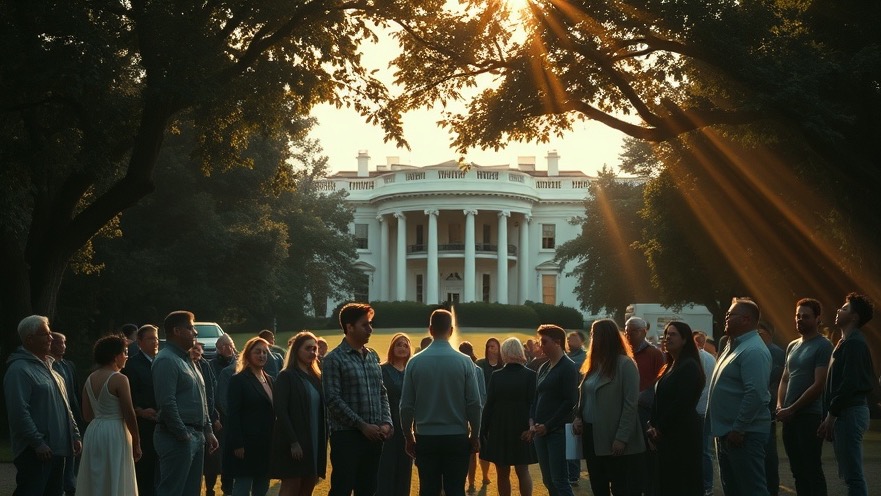
Understanding the Revival of Faith in Politics
The proximity of the faith office to the Oval Office is more than a matter of location; it symbolizes a pivotal shift in how spiritual matters intersect with governance. Recent engagements, particularly a major call from the President addressing over 10,000 faith leaders, highlight a renewed commitment towards protecting religious liberty. As many within the faith community witness this unfolding narrative, the landscape of American governance may be reshaping itself, driven by a more vocal and organized Christian base.
In How the White House Faith Office Revival Could Reshape America, the discussion dives into the integration of faith in political processes, exploring key insights that sparked deeper analysis on our end.
The Role of Faith Leaders in Contemporary Politics
Historically, faith leaders have often seen their influence limited to symbolic gestures within political environments. However, as noted in the latest developments, Trump has elevated the role of evangelical Christians from merely being a photo op to a significant force capable of impacting policy and decision-making processes. This revival of engagement can be recognized as a powerful tool for those advocating for the values that align closely with their beliefs.
Challenges and Opportunities for Evangelicals
There are significant challenges ahead for faith leaders advocating for rights, especially in a politically charged landscape where opposition can be fierce. Trump’s administration is noted for its attempts to aid Christians facing adversity, such as those in the military who objected to mandated vaccinations based on their beliefs. Addressing issues like these reflects a broader commitment to reversing trends of persecution against Christians and ensuring their rights are upheld. However, the ongoing division among evangelical leaders poses a risk to achieving cohesive efforts.
The Future of Religious Liberty in America
The President’s focus on religious liberty—a call that resonates with many Americans—offers a glimpse into potential legislative shifts. This administration has actively fought against policies seen as oppressive to Christian beliefs. Moreover, the establishment of a Department of Justice task force aimed at rooting out anti-Christian bias underscores an unprecedented advocacy currently underway. It is vital for believers to remain informed and involved, ensuring that their voices are not only heard but actively shaping future policy.
The Big Beautiful Bill: A Testament to Change
The upcoming “big beautiful bill” represents a consolidation of numerous initiatives that align with evangelical values. It includes provisions that may protect family farms, bolster border security, and ensure that parents can opt their children out of controversial curricula. Many evangelicals see it as aligned with their community's needs and values, but skepticism lingers regarding the political will to deliver on such promises.
Engagement and Unity Among the Christian Community
A vital takeaway from recent discussions is the essential need for unity among faith leaders and congregations to effectively advocate for their rights and interests. With Trump encouraging a more active role for Christians in political discourse, an emphasis on cohesive strategy rather than fragmented voices has never been more necessary. The potential for revitalizing the American faith movement depends heavily on this collaboration.
Through this lens, we can further explore how the presence of a faith office adjacent to the Oval Office not only enhances the visibility of Christians within political dialogues but also encourages believers to take action—fostering an environment where faith and politics may align for a greater good.
If you're intrigued by how the faith office revival could reshape America, now is the time to engage actively. Stay informed, connect with your local faith leaders, and explore avenues where your voice can advocate for issues you believe in. Together, we can ensure our collective voices produce meaningful change in our communities and beyond.
 Add Row
Add Row  Add
Add 




Write A Comment